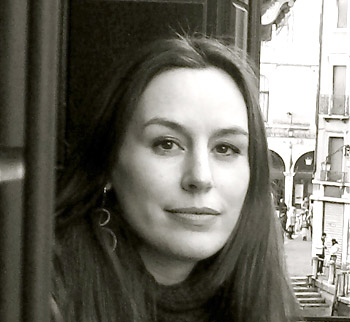TORONTO — The renewal of interest in Jewish culture and history in contemporary Poland is mainly rooted in a desire by liberal Poles to build a pluralistic society in their country, a Canadian sociologist says.
Genevieve Zubrzycki, a University of Michigan sociologist and director of its Polish studies program, said this interest cuts across various lines.
“It’s hip to be Jewish in Poland,” she declared.
This phenomenon manifests itself in the opening of new museums and memorials dedicated to Jews, the popularity of klezmer music, the proliferation of Jewish cultural festivals, Judaica bookstores and Jewish-cuisine restaurants and the increase in Holocaust tourism.
It is also evident in the emergence of Jewish studies programs at universities and the engagement of Polish artists and intellectuals with Poland’s Jewish past and in Polish-Jewish relations.
Zubrzycki, a Québécois whose ancestors include a Polish grandfather, delivered her comments earlier this month at a University of Toronto forum sponsored by the Centre for European, Russian and Eurasian Studies and co-sponsored by the Chancellor Rose and Ray Wolfe Chair in Holocaust Studies and the Centre for Jewish Studies.
Her speech was titled “Stretching the Symbolic Boundaries of the Nation: Jewish Renaissance and Philo-Semitism in Contemporary Poland.”
Zubrzycki, who has carried out extensive ethnographic fieldwork in Poland, suggested that her topic is really about the politics of memory and identity.
Prior to World War II, she noted, Poland was a multiculturally diverse nation of minorities, with ethnic Poles, Jews, Germans, Ukrainians, Tatars and others comprising its polyglot population.
According to the 1931 census, 65 per cent of its citizens were ethnic Poles. But with the redrawing of Poland’s borders after World War II, Poland became one of the world’s most ethnically homogenous countries.
Today, 96 per cent of people living in Poland are ethnic Poles, while only 5,000 to 25,000 are Jewish, compared to three million in 1939, said Zubrzycki, whose last published book was The Crosses of Auschwitz; Nationalism and Religion in Post-Communist Poland (University of Chicago Press).
Since the collapse of Communism in the late 1980s, pluralism has been hotly debated in Poland, she said.
The Communist regime worked to create a homogeneous Polish society, which, ironically, was the objective of right-wing Poles and the Catholic Church, long the repository of Polish nationalism.
During this four-decade period, the historical Jewish presence in Poland was considered virtually a taboo subject.
But after Communism was swept away and replaced by liberal democracy, Poles, particularly young, progressive Poles who value tolerance and diversity, began delving into Poland’s Jewish dimension.
Conservative, older Poles, on the other hand, continue to regard the concept of Polishness through the prism of ethnicity and Catholicism and associate Jews with the contagion of cosmopolitanism and liberalism, Zubrzycki said.
Poles who seek to build a pluralistic Poland present the Nazi mass murder of Jews during the Holocaust as a “tragic loss” for Poland.
They want Poland to revert to its “true essence” as a tolerant, open, heterogeneous, multicultural nation.
As well, they want to stretch the definition of Polishness to make it more inclusive.
Such Poles believe that Jews bring “colour” to Poland’s present monocultural landscape,” she said.
In a reference to antisemitism, Zubrzycki said their campaign to resurrect a multicultural Poland is also a function of a wish to exorcise “the demons of the past.”
Speaking of current projects by artists to promote a pluralistic Poland, Zubrzycki mentioned several, including “I Miss you, Jew” and “Poland for All.”
These projects are designed to reclaim and revive the memory of Poland’s pre-war Jewish community, combat antisemitism, break the boredom of ethnic “sameness” and save Poland from the grasp of right-wing nationalists.
It is difficult to know what proportion of Poles are in agreement with the goal of grafting diversity onto Poland, she acknowledged.
But this vision is primarily supported by young Poles and is gaining traction, she added. She praised the Krakow Jewish Cultural Festival as a model of its kind, saying more than a dozen cities In Poland have established such festivals since the 1990s.
According to Zubrzycki, they are indicative of the fascination Jews exert on some Poles in modern Poland.
